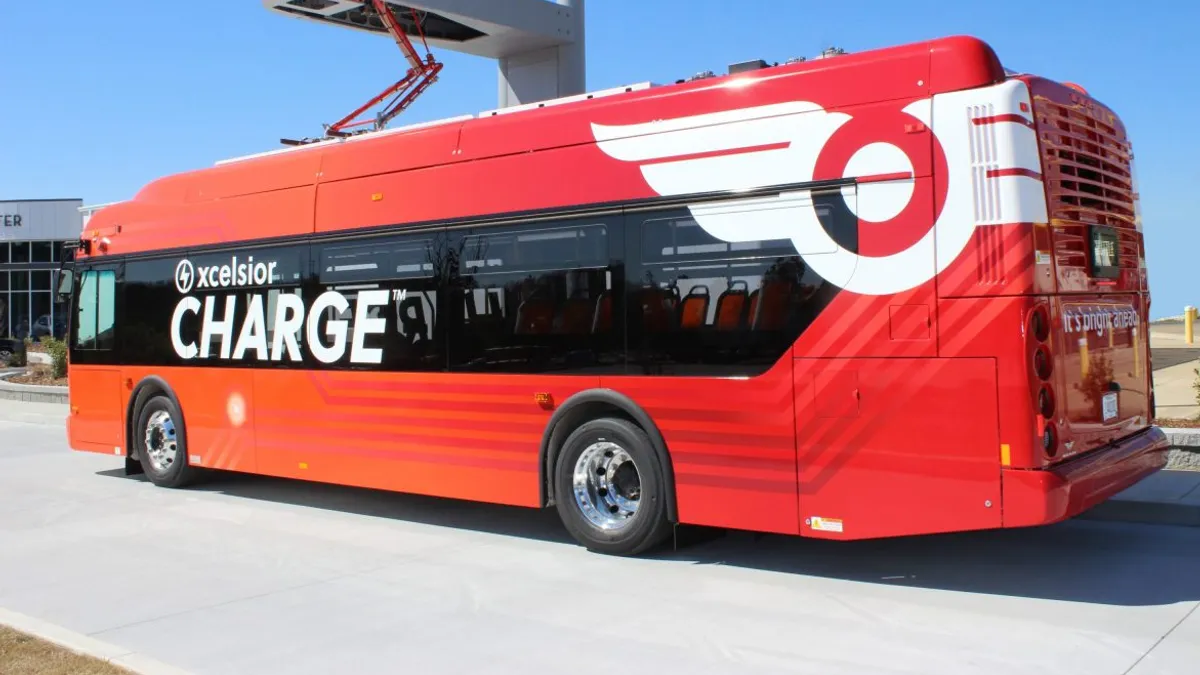Dive Brief:
- Bus manufacturer New Flyer has launched an autonomous technology program to develop and deploy self-driving and driver-assist technology for public transit agencies.
- In a release, New Flyer said it will focus on building connectivity and vehicle-to-infrastructure (V2I) technology into public roadways. The company also said it will coordinate its efforts with federal agencies and industry groups working on automation, including the Society of Automotive Engineers.
- "Transit agencies across North America have been asking for progressive technology, regulators have shown commitment and support to technology advancement, and passenger confidence has been increasing as they experience autonomous technology firsthand," New Flyer president Chris Stoddart said in a statement.
Dive Insight:
Most major technology research has focused on smaller autonomous vehicles (AVs), with companies eyeing shared autonomous fleets or ride-hailing services. But applying self-driving technology to public transit could hold huge potential, making bus service more energy efficient and safer. Buses travel on defined routes and can be coordinated with connected infrastructure, making them a potentially appealing option for cities fearful of further congestion from autonomous fleets.
Governments have already been exploring driverless shuttles, which carry fewer people than a full-size bus and run on shorter routes. Cities like Detroit, Las Vegas and Austin, TX have all run autonomous shuttle trials. Autonomous buses have gathered more research abroad, with pilots in China and the Netherlands. Volvo recently ran trials for an 85-passenger autonomous, electric bus at Singapore’s Nanyang Technological University.
New Flyer has tried to position itself at the forefront of new bus technology. The company has sold hybrid and electric buses to cities like Boston and in January launched New Flyer Infrastructure Solutions, an arm to promote electric buses and charging equipment. The company’s Vehicle Innovation Center is also North America’s first lab focused on advancing bus and coach technology.
New Flyer has emphasized that it will lean on industry partners, including trade groups like the American Public Transportation Association (APTA), to coordinate automation technology and roll it out safely and efficiently. The focus on V2I technology could also help cities as they prepare for wider AV deployment — since the buses will be sharing roads with autonomous passenger cars, connected infrastructure can help keep all autonomous users coordinated and safe.











